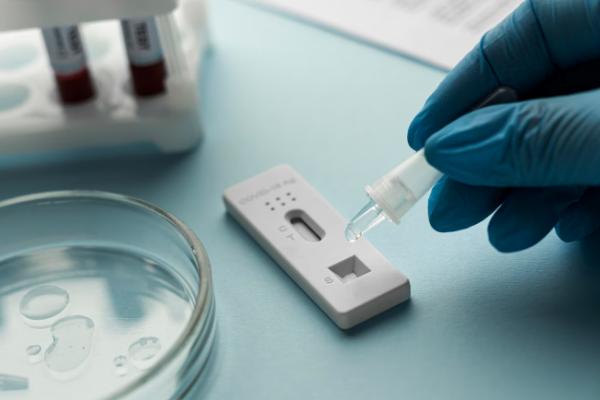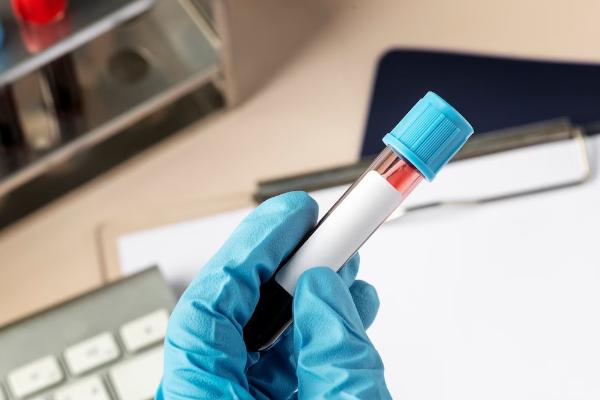
With rising Sexually Tramitted Disease (STD) rates and concerning patterns of substance abuse, Bridgeport, CT, faces a pressing public health challenge. It’s important to the critical link between STDs and substance abuse, shedding light on the significance of STD testing in Bridgeport, CT. By exploring the intersection of these issues, we aim to foster a healthier and more informed community that takes proactive steps toward prevention and treatment.

Substance abuse is the chronic and excessive use of psychoactive substances that alter the user’s mood, behavior, or cognitive functions. It encompasses many substances, including alcohol, illicit drugs, prescription medications, and inhalants. Substance abuse can lead to severe physical, psychological, and social consequences for individuals and those around them.
Alcohol is one of the most commonly abused substances worldwide, and Bridgeport, CT, is no exception to this trend. Excessive alcohol consumption can impair judgment, coordination, and decision-making, making individuals more prone to risky sexual behaviors.
The disinhibiting effects of alcohol can contribute to unprotected sex and multiple sexual partners, elevating the risk of contracting and spreading STDs. As alcohol is widely available and socially accepted, it remains a significant contributor to substance abuse-related issues, increasing the need for STD testing in Bridgeport, CT.
Opioid abuse, including prescription painkillers and illicit drugs like heroin, has reached epidemic proportions in many parts of the United States, including Bridgeport, CT. These substances can induce feelings of euphoria, relaxation, and pain relief, but they also carry the potential for harmful consequences.
Individuals under the influence of opioids may be more likely to engage in unsafe sexual activities, contributing to the spread of STDs within the community. The opioid crisis has profoundly impacted public health, affecting individuals from all walks of life and posing challenges for STD testing in Bridgeport, CT, and prevention efforts.
Stimulant drugs, such as cocaine and methamphetamine, stimulate the central nervous system. These drugs can elevate energy levels, increase confidence, and decrease inhibitions. However, they also contribute to risky sexual behaviors, including engaging in unprotected sex and participating in promiscuous activities.
The combination of stimulant use and impulsive behavior can increase vulnerability to STDs. Like other forms of substance abuse, stimulant abuse can strain the healthcare system, particularly STD testing in Bridgeport, CT, and treatment services.
Bridgeport, CT, faces unique substance abuse challenges, with certain substances being more prevalent in the area. Understanding the local patterns of substance abuse is crucial for developing effective strategies to address the associated health risks, including the spread of STDs and doing STD testing in Bridgeport, CT.
Like many other cities in the United States, Bridgeport has witnessed an alarming increase in heroin abuse. Heroin, a highly addictive opioid drug derived from morphine, has a powerful impact on the brain’s reward system, leading individuals to seek repeated use.
The opioid epidemic has devastated individuals and communities, leading to increased rates of substance abuse and risky sexual behaviors, ultimately impacting the prevalence of STDs. Combating the heroin epidemic requires a comprehensive approach that includes not only STD testing in Bridgeport, CT but also addiction treatment and harm reduction programs.
Prescription drug abuse, particularly opioid painkillers, and benzodiazepines, remains a concern in Bridgeport. These medications, when misused, can impair judgment and contribute to risky sexual activities. Alternatively, patients can seek medical cannabis through a dispensary nearest to them to get proper consultation on how to best consume prescribed medications.
Opioid painkillers, in particular, have a high potential for abuse and addiction, leading some individuals to resort to illicit drug use when prescriptions are no longer available. Addressing the misuse of prescription medications and STD testing in Bridgeport, CT, are vital for reducing the prevalence of substance abuse-related issues and STD transmission.
Alcohol abuse remains a pervasive problem in the city, affecting people of all ages and backgrounds. The social acceptability of alcohol often masks the severity of its consequences, including its role in facilitating risky sexual behaviors.
Excessive alcohol consumption can lower inhibitions, leading to a higher likelihood of engaging in unprotected sex and increasing the risk of contracting STDs. Efforts to combat alcohol abuse and its associated risks should be integrated into broader substance abuse and STD prevention strategies like STD testing in Bridgeport, CT.
Like many urban centers, Bridgeport, CT, grapples with the prevalence of sexually transmitted diseases (STDs). The city’s diverse population and various socioeconomic factors contribute to the spread of these infections. Understanding the common STDs in the area is crucial for developing targeted prevention and intervention strategies like STD testing in Bridgeport, CT.
Chlamydia is the most frequently reported STD in Bridgeport. This bacterial infection affects both men and women and is known to be asymptomatic in many cases. As a result, individuals may be unaware of their infection and unknowingly transmit the disease to others. If left untreated, chlamydia can lead to serious health complications, including pelvic inflammatory disease (PID), which can cause fertility issues in women.
Gonorrhea, another bacterial infection, is also prevalent in Bridgeport. It can affect various body parts, including the genitals, rectum, and throat. Like chlamydia, gonorrhea can be asymptomatic, making early detection and testing crucial for effective treatment. Left untreated, gonorrhea can lead to complications such as PID, infertility, and an increased risk of HIV transmission.
While syphilis was once on the decline, it has resurfaced as a public health concern for STD testing in Bridgeport, CT. This bacterial infection progresses in stages, and its symptoms may mimic those of other illnesses, leading to potential misdiagnoses. If untreated, syphilis can cause severe health issues, including neurological and cardiovascular complications.
HIV, the virus responsible for acquired immunodeficiency syndrome (AIDS), is also a significant concern in Bridgeport. HIV weakens the immune system, making individuals more susceptible to infections and diseases. Engaging in risky sexual behaviors, especially among those who abuse substances, increases the likelihood of HIV transmission. Early detection through STD testing in Bridgeport, CT, and treatment of HIV is crucial for managing the infection and preventing its progression to AIDS.

The correlation between substance abuse and risky sexual behaviors is complex and multi-faceted, with far-reaching implications for public health, particularly in Bridgeport, CT. Understanding this connection is vital in developing effective strategies for addressing substance abuse and the prevalence of sexually transmitted diseases (STDs) in the community.
Substance abuse, including alcohol, opioids, and stimulants, can impair judgment and cognitive functions. When under the influence of these substances, individuals may be more likely to engage in impulsive behaviors, including risky sexual activities. The impaired decision-making capacity can lead to unprotected sex, having multiple sexual partners, or engaging in sexual encounters with individuals at high risk for STDs. Consequently, the risk of contracting and transmitting STDs increases significantly, requiring regular STD testing in Bridgeport, CT.
In Bridgeport, where alcohol abuse and opioid addiction are prevalent issues, understanding the link between substance abuse and risky sexual behaviors is critical in crafting targeted prevention and intervention programs. By promoting awareness of the impact of substance use on sexual health and encouraging responsible decision-making, public health officials can work towards reducing the transmission of STDs through STD testing in Bridgeport, CT.
One of the common effects of substance abuse is reduced inhibitions, which can lead to engaging in behaviors that individuals would otherwise avoid when sober. In the context of sexual activity, this can include having unprotected sex, not using barrier methods like condoms, and engaging in sexual encounters with multiple partners. Combining substance-induced euphoria and diminished inhibitions can create a perfect storm for risky sexual behaviors, increasing the likelihood of contracting and spreading STDs.
Bridgeport’s diverse population and high rates of substance abuse create a unique challenge in addressing risky sexual behaviors. To combat this issue, community-specific educational programs can emphasize the importance of responsible decision-making and the role of STD testing in Bridgeport, CT, in preventing the spread of infections.
Substance abuse and high-risk sexual behaviors often occur within overlapping social networks. Individuals who engage in substance abuse may share these substances with others, leading to a higher likelihood of engaging in sexual activities with partners who also engage in risky behaviors. This interconnectedness within social circles can facilitate the rapid spread of STDs within these communities.
To address this challenge in Bridgeport, CT, community-based interventions should target specific at-risk populations, promoting safe sexual practices, substance abuse prevention, and STD testing in Bridgeport, CT. By fostering a sense of community responsibility and promoting open dialogues about sexual health and substance abuse, we can create a supportive environment for healthy decision-making.
Substance abuse and risky sexual behaviors share common risk factors, such as poverty, homelessness, and mental health issues. These factors can increase an individual’s vulnerability and may limit their access to healthcare, including STD testing and treatment services. As a result, affected individuals may delay seeking STD testing in Bridgeport, CT, leading to untreated infections and further spread of STDs.
Addressing the shared risk factors of substance abuse and STDs is crucial for promoting overall well-being in Bridgeport. By improving access to STD testing in Bridgeport, CT, and providing targeted support services, including substance abuse treatment and counseling, the community can better address the complex and interrelated challenges of STDs and substance abuse.
For individuals who abuse substances intravenously, such as heroin, needle-sharing is a common practice that significantly increases the risk of blood-borne infections, including HIV and hepatitis C. Needle-sharing practices can facilitate the rapid spread of infections within the substance-abusing community, further contributing to the prevalence of STDs.
Harm reduction strategies are essential to combat the transmission of blood-borne infections through needle-sharing. Implementing syringe exchange programs and increasing access to sterile needles can help minimize the risk of infection transmission. Additionally, offering comprehensive healthcare services, including STD testing in Bridgeport, CT, to individuals using intravenous drugs can lead to early detection and timely treatment of STDs.
Access to reliable and confidential STD testing in Bridgeport, CT, is critical to promoting sexual health and preventing the spread of sexually transmitted infections (STIs) within the community. Fortunately, Bridgeport offers a range of facilities and resources where individuals can seek testing, counseling, and treatment services.
The Bridgeport Department of Health is pivotal in providing essential STD testing in Bridgeport, CT, and treatment services to the community. The department operates various clinics and outreach programs that offer free or low-cost testing for common STIs such as chlamydia, gonorrhea, and syphilis. Public health departments are particularly crucial in reaching vulnerable populations who may face barriers to accessing healthcare, including those without health insurance or experiencing homelessness.
Community health centers like the Southwest Community Health Center and Optimus Health Care are invaluable resources for accessible healthcare services, including STD testing in Bridgeport, CT. These centers provide comprehensive care to individuals of all ages and backgrounds, regardless of their ability to pay. They offer confidential and non-judgmental STD testing, treatment, counseling, and education to help individuals make informed decisions about their sexual health.
Numerous private clinics and healthcare facilities offer STD testing in Bridgeport, CT, and treatment services. These private providers often offer a broader array of testing options, including comprehensive STD panels that cover various infections. Additionally, private healthcare providers may offer more personalized care and shorter waiting times for individuals seeking testing and treatment.
The Planned Parenthood health center in Bridgeport is a well-known and trusted resource for sexual health services, including STD testing in Bridgeport, CT. The center provides confidential and non-discriminatory care to individuals of all ages and backgrounds. They offer comprehensive sexual health education, counseling, and resources to empower individuals to take charge of their sexual health.
Colleges and universities in Bridgeport often offer on-campus health centers that provide students access to confidential counseling services and STD testing in Bridgeport, CT. These resources are particularly important for young adults exploring their sexual health and relationships.
In Bridgeport, CT, various STD tests are available, each designed to detect specific infections accurately. The accuracy of these tests depends on various factors, including the type of test, the timing of the test about potential exposure, and the individual’s risk factors.
NAATs are highly sensitive and specific tests that detect bacterial infections like chlamydia and gonorrhea. These tests can be performed on urine samples, vaginal or urethral swabs. NAATs have a high accuracy rate and can detect infections even in their early stages, making them a valuable tool for early diagnosis and treatment.
Rapid diagnostic tests, also known as point-of-care tests, detect certain STDs, such as HIV and syphilis. These tests provide quick results, often within minutes, enabling healthcare providers to offer immediate counseling and appropriate care. While rapid tests offer convenience and speed, confirmatory testing is typically recommended for positive rapid test results to ensure accuracy.
EIAs commonly detect viral infections like HIV and hepatitis B and C. These tests detect antibodies produced by the body in response to the infection. While EIAs are generally accurate, false positives and negatives can occur, necessitating further testing to confirm results.
Serologic tests detect antibodies the body produces in response to certain infections, such as syphilis. These tests help diagnose past or present infections. However, they may not indicate the stage of infection, requiring additional tests and clinical evaluation.
HPV testing is used to detect high-risk strains of the virus that can lead to cervical cancer and other HPV-related cancers. HPV testing is often performed along with Pap smears as part of cervical cancer screening. Early detection of HPV can lead to timely intervention and reduce the risk of cancer development.

Bridgeport, CT, offers a range of treatment options and resources for individuals diagnosed with STDs. Effective treatment is essential for managing infections, preventing complications, and reducing the transmission of STDs within the community.
Bacterial STDs, such as chlamydia, gonorrhea, and syphilis, can often be treated effectively with antibiotics. Early diagnosis and prompt treatment are crucial in preventing the progression of these infections and minimizing their impact on an individual’s health.
Viral STDs, such as HIV and herpes, require antiviral medications to manage symptoms and reduce viral replication. While there is no cure for some viral infections, such as HIV, antiviral therapy can help individuals lead healthier lives and reduce the risk of transmission to others.
Healthcare providers and public health departments offer partner notification services to inform sexual partners of an individual diagnosed with an STD. This helps ensure that partners receive testing and treatment, preventing further transmission of the infection.
Receiving an STD diagnosis can be emotionally challenging for individuals. Many clinics and organizations in Bridgeport offer counseling and support services to help individuals cope with the emotional impact of their diagnosis and make informed decisions about their health and relationships.
In addition to treatment, Bridgeport offers various prevention resources, such as educational materials, safe sex supplies (e.g., condoms), and vaccination programs for infections like human papillomavirus (HPV) and hepatitis B. Prevention is a critical component of managing STDs and reducing their prevalence in the community.
By examining the correlation between substance abuse and risky sexual behaviors, Bridgeport can take significant steps toward building a healthier, more informed community. One highly recommended facility for STD testing in Bridgeport, CT, is DOCS Urgent Care & Primary Care – Bridgeport. We’re a reputable healthcare provider that offers reliable, confidential, and non-judgmental STD testing services. Visit our clinic to get STD testing results in 20 minutes or less.

During this surge in COVID-19 cases, our primary focus is meeting the high demand for tests, and we are seeing higher than usual wait times. This means we are unable to answer most phone calls. Please know that our teams are working very hard during this time to care for as many patients as safely as possible. Please click the button below for answers to common questions. We appreciate your understanding.